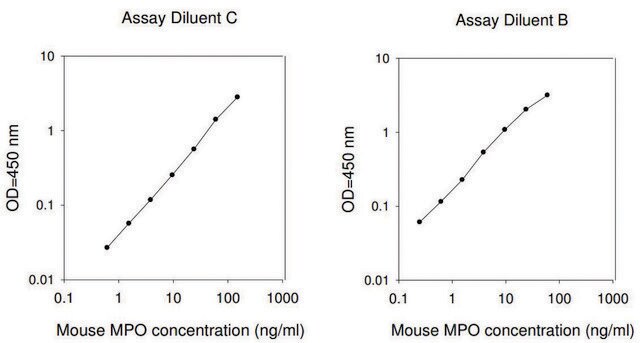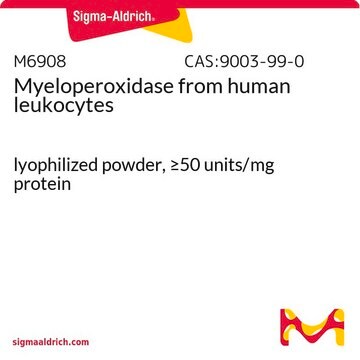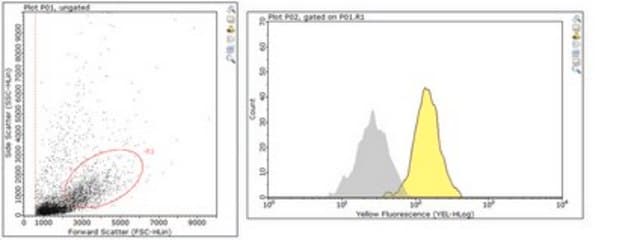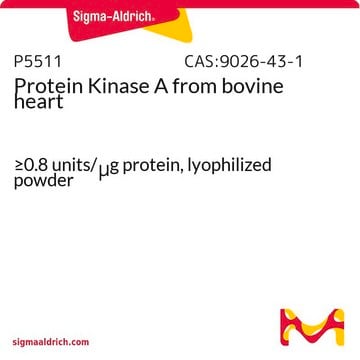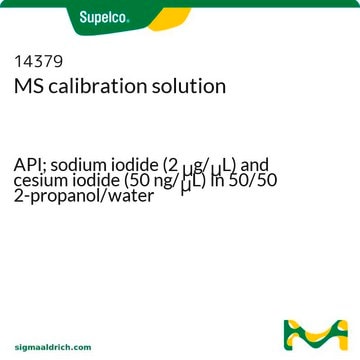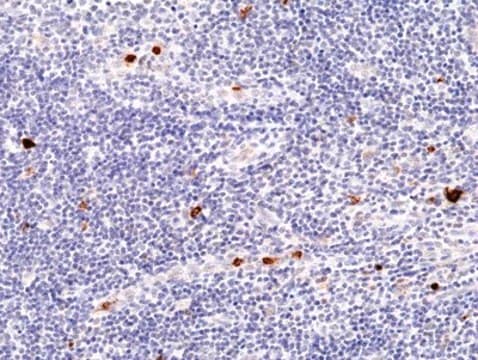N5787
Anti-Neutrophil Myeloperoxidase antibody produced in rabbit
IgG fraction of antiserum, buffered aqueous solution
Sign Into View Organizational & Contract Pricing
All Photos(1)
About This Item
conjugate:
unconjugated
application:
ELISA (i)
WB
WB
clone:
polyclonal
species reactivity:
human
citations:
5
technique(s):
indirect ELISA: 1:4,000
western blot: 1:4,000
western blot: 1:4,000
Recommended Products
biological source
rabbit
Quality Level
conjugate
unconjugated
antibody form
IgG fraction of antiserum
antibody product type
primary antibodies
clone
polyclonal
form
buffered aqueous solution
species reactivity
human
technique(s)
indirect ELISA: 1:4,000
western blot: 1:4,000
UniProt accession no.
shipped in
dry ice
storage temp.
−20°C
target post-translational modification
unmodified
Gene Information
human ... MPO(4353)
General description
Myeloperoxidase (MPO) is an oxidoreductase which is part of the heme peroxidase superfamily.
Immunogen
human neutrophil myeloperoxidase.
Application
Applications in which this antibody has been used successfully, and the associated peer-reviewed papers, are given below.
Enzyme-linked immunosorbent assay (1 paper)
Enzyme-linked immunosorbent assay (1 paper)
Biochem/physiol Actions
Myeloperoxidase (MPO) is present in the neutrophils and released when leukocytes are activated. It takes part in defense mechanisms and oxidizes low-density lipoprotein. MPO possesses a chlorinating activity with which it generates hypochlorous acid (an anti-microbial agent). It also decreases the bioavailability of nitric oxide.
Physical form
Solution in phosphate buffered saline and 0.05% sodium azide.
Disclaimer
Unless otherwise stated in our catalog or other company documentation accompanying the product(s), our products are intended for research use only and are not to be used for any other purpose, which includes but is not limited to, unauthorized commercial uses, in vitro diagnostic uses, ex vivo or in vivo therapeutic uses or any type of consumption or application to humans or animals.
Not finding the right product?
Try our Product Selector Tool.
Storage Class Code
10 - Combustible liquids
Flash Point(F)
Not applicable
Flash Point(C)
Not applicable
Choose from one of the most recent versions:
Certificates of Analysis (COA)
Lot/Batch Number
Don't see the Right Version?
If you require a particular version, you can look up a specific certificate by the Lot or Batch number.
Already Own This Product?
Find documentation for the products that you have recently purchased in the Document Library.
Judit Kalász et al.
Free radical biology & medicine, 84, 116-127 (2015-03-17)
We set out to characterize the mechanical effects of myeloperoxidase (MPO) in isolated left-ventricular human cardiomyocytes. Oxidative myofilament protein modifications (sulfhydryl (SH)-group oxidation and carbonylation) induced by the peroxidase and chlorinating activities of MPO were additionally identified. The specificity of
Martin T Spang et al.
Nature biomedical engineering, 7(2), 94-109 (2022-12-30)
Decellularized extracellular matrix in the form of patches and locally injected hydrogels has long been used as therapies in animal models of disease. Here we report the safety and feasibility of an intravascularly infused extracellular matrix as a biomaterial for
Matthew J Gounis et al.
Stroke, 45(5), 1474-1477 (2014-04-10)
Noninvasive imaging identifying a predictive biomarker of the bleeding risk of unruptured intracranial aneurysms (UIAs) is needed. We investigated a potential biomarker of UIA instability, myeloperoxidase, in human aneurysm tissue. Human brain aneurysms were harvested after clipping and were histologically
Ishan Agrawal et al.
STAR protocols, 2(3), 100678-100678 (2021-08-07)
Extracellular traps (ETs) are composed of decondensed chromatin and are embedded with various antimicrobial proteins like myeloperoxidase and histones. Recently, we reported that dopamine (DA) induces ETs in BV2 microglia cell line and primary adult human microglia in a manner
Peng-cheng Xu et al.
BMC immunology, 16, 10-10 (2015-04-17)
C-reactive protein (CRP) exerts prothrombotic effects through dissociating from pentameric CRP (pCRP) into modified or monomeric CRP (mCRP). However, although the high prevalence of venous thromboembolism (VTE) in patients with anti-neutrophil cytoplasmic antibody (ANCA)-associated vasculitis (AAV) has been identified, it
Our team of scientists has experience in all areas of research including Life Science, Material Science, Chemical Synthesis, Chromatography, Analytical and many others.
Contact Technical Service